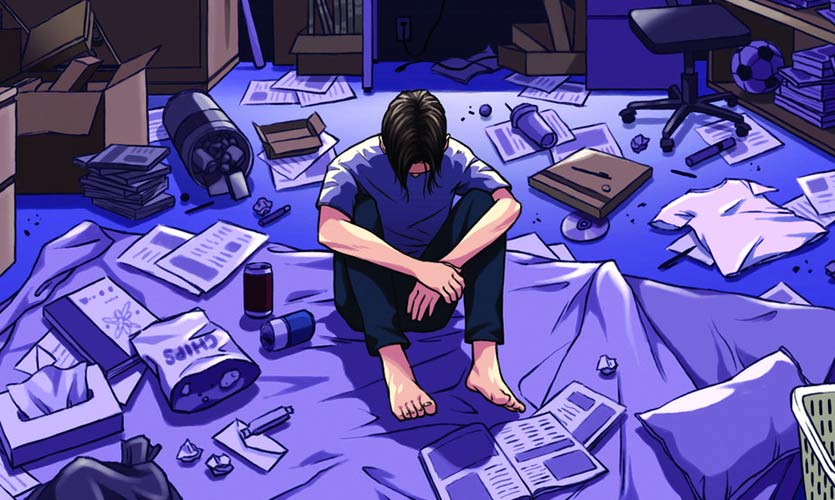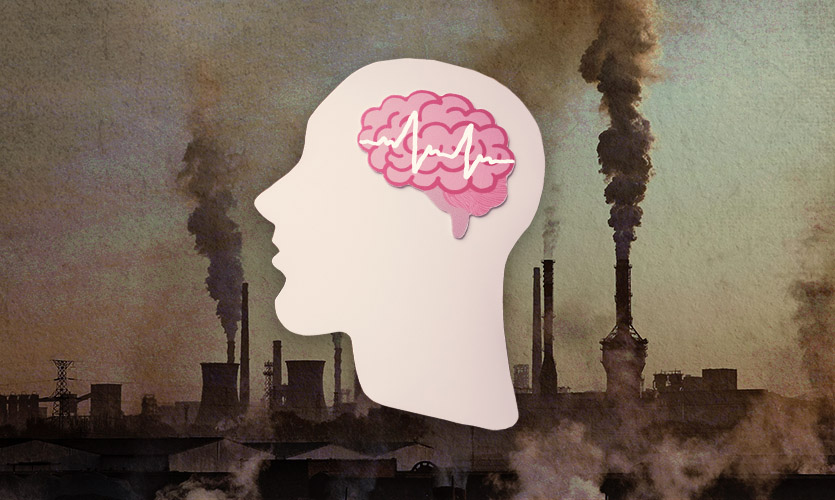Man is a social animal whose overall health is dependent on diverse social interactions and relationships. We all know the value of a good talk with a friend. We have all felt the pain of loneliness at some point. There are several studies that show that people with a close set of friends tend to live happier, healthier lives. Yet, we are living in a world that is increasingly replacing human interaction with technology. However, technology is proving to be a poor substitute.
The pandemic forced us into lockdowns. For roughly two years, avenues for social interaction were diminished. This has generated a lot of debate about the resulting loneliness and growing isolation and depression in society. But has the pandemic brought about this social disconnect or was it already present in an increasingly tech-driven society?
Various studies in the past decade indicate that the intrusive and excessive use of technology is to be blamed for loss of human connection. Developmental Psychologist Michelle Drouin calls it, an “intimacy famine.” The pandemic may have exacerbated the lack of social intimacy, but technological developments have facilitated its growth.
In her book Out of Touch: How to Survive an Intimacy Famine, Michelle Drouin blames this phenomena on the growing use of technology. For instance, social media platforms and online dating sites have replaced casual meet-ups among friends, sleepovers and coffee-dates.
When the pandemic hit us, we were already in a situation of intimacy famine. Then came the use of masks, quarantines and the lack of visits from housekeepers and caretakers. Things took a turn for the worse for the vulnerable population. Children, single mothers, mothers battling postnatal depression, the elderly, the sick and people with disabilities and mental health issues lost their social support systems. The Lancet published articles reporting a greater number of deaths and injuries due to elder abuse as welfare workers and neighbours were no longer there to keep an eye.
A similar situation was reported by The Guardian regarding an increase in child abuse during the pandemic in the UK. Children were no longer going to schools. Online schools did not allow teachers to keep a regular watch on the overall physical and mental health of their pupils. Children like Logan Mwangi and Arthur Labinjo-Hughes were victims of society’s apathy during a pandemic that left them isolated and open to abuse in their own homes.
Tragically, although such extreme cases have increased they have always existed. For instance, Joyce Vincent’s death in 2003 went unnoticed for two years. Her neighbours could smell the stench but no one bothered to ring the doorbell. It was only when her rent accrued that the bailiffs decided to break down the door and her body was discovered.
More commonly, we are witnessing the break down of face to face interactions. Couples go out on dinner dates but are busy on their phones. Families no longer gather around the dining table to eat and converse. In Japan, which has a very high amount of tech intrusion, there is a pandemic of loneliness and suicide. In fact, the Japanese have a word, Hikikomori, that refers to acute social withdrawal. Some Japanese youngsters exhibit Hikikomori to such an extent that they stay in their rooms all day, playing video games. They study online, they chat with friends online and order their meals online. There are video game parlours in Japan that have living quarters; family life is discarded in favour of virtual reality.
High rates of suicide in Japan have often been blamed on this social isolation. According to a paper published in 2019 by the Japanese Ministry of Health, Labor, and Welfare, suicides by those under 20 are at the highest since 2000. Such is the lack of real-life interaction that the Japanese have commercialised social relationships. There is a cuddle café in Japan which lets you cuddle in bed and eat with a professional cuddler for a price. The documentary Rent a Family Inc. shows how one can even rent family members in Japan. Across the US and Europe too, professional cuddlers can easily be hired online.
A 2018 study on social media by University of Pennsylvania psychologist Melissa Hunt, conducted among 18 to 22 year olds, found that less time spent on social media led to reduced feelings of loneliness. She concludes that social media cannot and should not be removed altogether, but should be used judiciously, without forming a dependence. Similarly, in 2019, Michelle Drouin and family scientist Brandon T. McDaniel carried out a study among couples and found that with higher interference from technology, increased conflict and unhappiness was reported in their relationships.
On the other hand, a 2016 study, by Michigan State University psychologist William Chopik, on social technology use among the elderly revealed that technology is beneficial in providing medicine and physical assistance to the elderly. Additionally, it is beneficial for their mental health. Chopik studied 600 adults and found that social media use is beneficial in stimulating the brain. It enables the elderly to stay connected with their loved ones and receive daily news. This increases general well being leading to fewer chronic illnesses. It also lowers feelings of loneliness and depression.
Thus, excessive use of social media is not good for young adults who have access to the world outside. On the other hand, technology is a great facilitator for the elderly who do not have as many avenues for real life social interactions. Online video conferencing, online banking and retail are all very helpful to the elderly and the disabled.
In fact, the pandemic has shown various ways in which technology can help people come together. People in isolation or quarantine could connect with loved ones online. Neighbours could help each other deliver food, medicine and critical assistance. Social media groups helped organise supply chains for medicines, oxygen cylinders, daily meals, ambulances and even funerals.
Hence, technology should be used to facilitate diversity and strength of positive human interactions. It should be used as a tool to tackle our problems and improve daily ease of living. But it has to be used in a balanced way such that it does not become a substitute for human relationships. Human beings need to balance the use of technology, and not become mentally enslaved and dependent on it.
Read more: Taking Care Of Mental Health In The Times Of Distress










